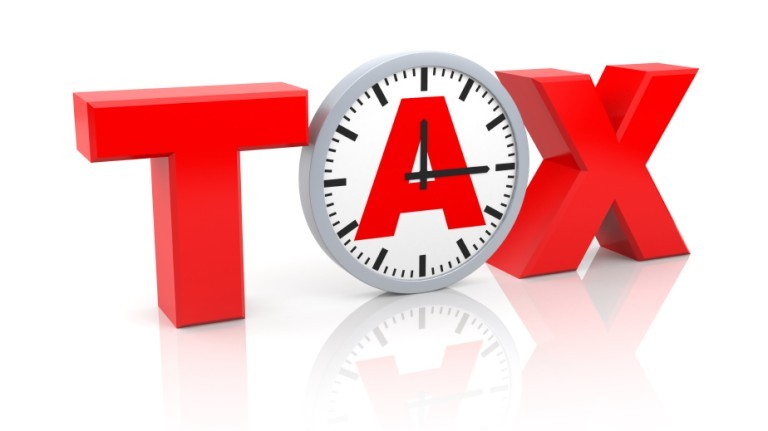- Finanzas
- Artículo
- Lectura de 6 minutos
- Last Updated: 02/13/2014
Are you Ready for Tax Season? Filing and Paying Business Tax Basics

Table of Contents
From the moment you put the “open” sign on the door, you should ensure that your business is compliant for tax filing that year. You’ll need to register for an Employee Identification Number (EIN), or Federal Tax Identification Number, in order for the IRS to identify your tax reports and see you as a business entity. The IRS outlines the multiple ways a business can apply for an EIN, and now allows businesses to apply online for free. Check with your state to find out if there are any other legal requirements that need to be met before you open up shop.
It’s important to determine when the tax year starts for your business to prevent missing important dates. The annual period in which the income and expense records are kept and reported is your tax year. The U.S. Small Business Administration (SBA) reports that your business’ tax year can be set up based on the calendar year, which ends December 31, or it can run on a fiscal year calendar, which is a 12-consecutive-month period ending on the last day of any month except December.
Fulfill state and local tax requirements
Along with the federal taxes your business has to file and pay, you’ll also be obligated to fulfill state and local tax requirements. The type of business you operate — whether it’s a sole proprietorship, partnership, corporation, S corporation, or a limited liability company (LLC) — will determine which federal and state income tax forms you file. Every state handles their tax structure differently, so be sure to stay current on the latest requirements. Income taxes and employment taxes are the most common state taxes that a company is required to pay. State workers’ compensation insurance and unemployment insurance are included in the employment taxes. A small number of states require businesses to pay for temporary disability insurance.
Determine what business taxes you will pay
Generally, the IRS recognizes four basic types of business taxes:
1. Income tax
A business must pay income tax as they earn or receive income throughout the year. This includes income from self-employment, interest, dividends, alimony, rent, gains from the sale of assets, prizes, and awards. If you expect to owe taxes greater than $500 (for corporations) or $1,000 (for sole proprietors, partners, or S corporations), you may have to make an estimated tax payment. The estimated taxes are regular quarterly payments made throughout the year. If the full amount of estimated taxes is not paid entirely, you may be subject to a penalty. The type of form you file depends on your business, so check with the IRS to find out which forms apply to you.
2. Self-employment tax
This tax category is primarily reserved for individuals who work for themselves, and it consists of a social security and Medicare tax. This tax is levied to provide you with social security coverage — retirement, disability, hospital, and survivor benefits. If your net earnings from self-employment were $400 or more, you’re required to pay a self-employment (SE) tax and file Schedule SE (Form 1040).
3. Employment taxes
Any business that has employees on the payroll has to pay employment taxes. Social security and Medicare tax, federal income tax withholding, and federal unemployment tax (FUTA) are the three required employment taxes. According to the IRS, as an employer, you must withhold social security and Medicare taxes from employees’ wages and are required to pay a matching amount yourself. An employer must also withhold federal income tax from the employees’ wages — however, the employer does not have to match this tax. The FUTA tax is paid only by the employer and not the individual employees, and contributes towards the program that pays unemployment compensation to workers who lose their jobs. To find out how much to withhold from your employees’ wages, they must fill out a W-4 form.
4. Excise taxes
An excise tax is an internal tax levied on the manufacture, sale, or consumption of a commodity. If your business does any of the following, you’ll have to file for excise taxes:
- Manufacture or sell particular products such as gasoline, liquor, or cigarettes
- Operate particular kinds of businesses
- Use various kinds of equipment such as highway trucking
- Receive payment for services such as wagering pools or lotteries
The forms that are required to be filled out include Form 720, Form 2290, Form 730, or Form 11-C.
Manage your accounting records
Filing business taxes requires precise bookkeeping and preparation. It is important to keep accurate records of all business sales, expenses, and deductions throughout the year in order to avoid surprises when tax season rolls around. Hold onto receipts, invoices, deposit slips, cancelled checks, and other important documents in case the IRS questions anything on your tax return.
Fill out the proper forms and pay taxes
The final step to filing your business taxes is filling out the proper tax forms. This is all dependent on your business type, if your business has employees, and what taxes you are required to pay. You can refer to Publication 15 from the IRS to determine which form your business should file. Once you’ve filled out your forms and are ready to turn them over to the IRS, you have to decide the best way to pay your taxes. The IRS now uses safe, secure electronic payment options, and some of the methods are free to use.
In order to properly manage your business and safeguard your future growth, it’s critical to educate yourself on all aspects of business tax — from which forms to use, how to properly fill them out, to new regulations and requirements from the IRS.
Tags







